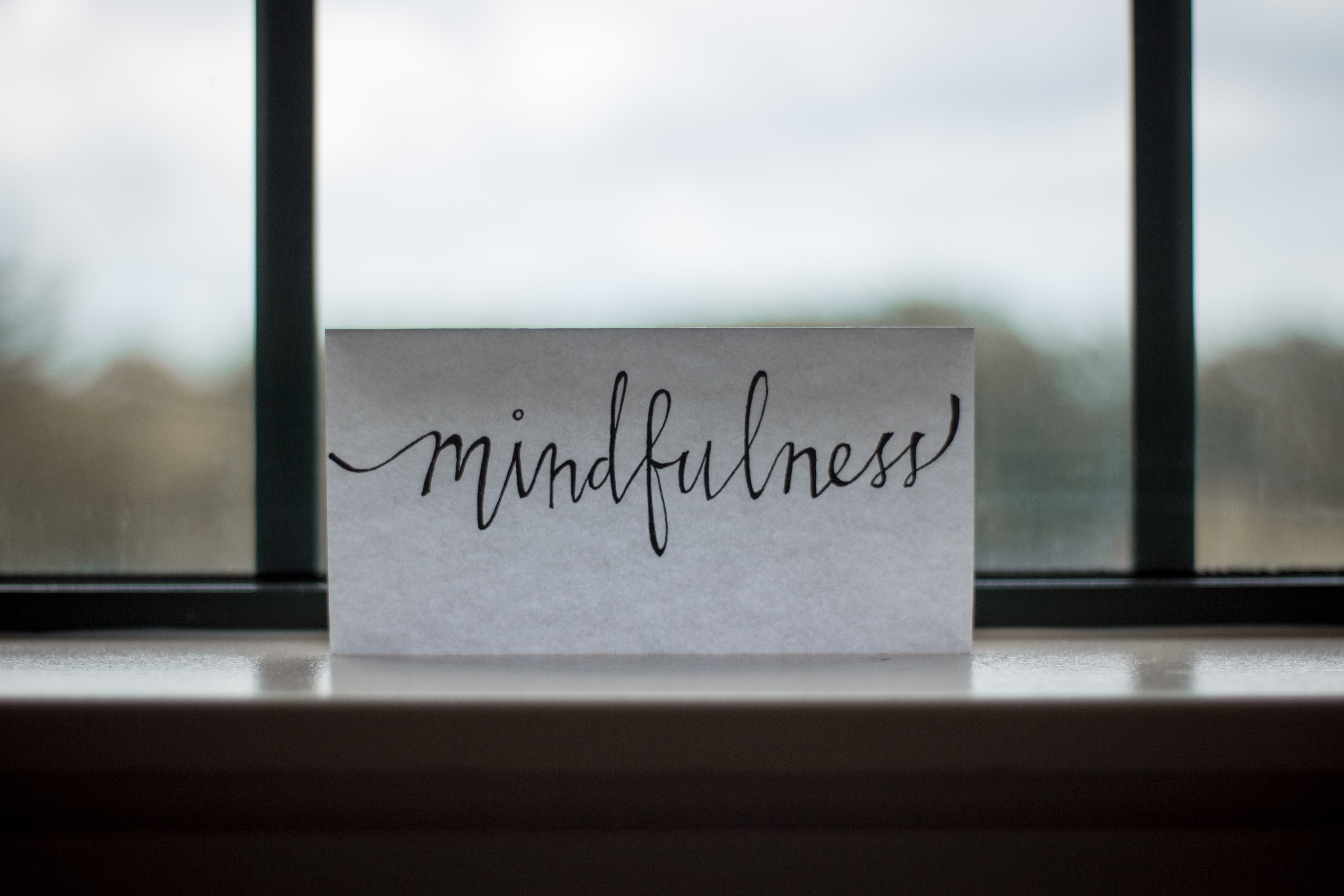What is Mindfulness and How Does it Work?
Now that we’ve suitably got you excited by the concept of mindfulness by telling you how great it apparently is in the last blog, it seems like it’s only fair to tell you a bit more about mindfulness itself.
Last time we discussed the ways in which mindfulness can help you, including its health benefits and why you ought to want to learn more about it.
On this instalment of this trilogy, we will be answering two questions:
- What is mindfulness?
- How does mindfulness work?
Watch Natasha introduce our mindfulness trilogy below!
What Is Mindfulness?
You might have heard mindfulness talked about hand-in-hand with meditation, and there’s a good reason for that – but it’s not the same thing!
Meditation is all about calming your mind and your body, and refocusing and retraining your mind – and mindfulness is just one of the ways you can do that.
That’s why people talk about ‘mindfulness meditation’ as a specific practice, but mindfulness itself is a practice all on its own. Being mindful is, at its simplest, about being aware of what’s going on in and around us, and being able to do that in a healthy way.
Right, I know... what does ‘in a healthy way’ mean?
Well, you remember stuff, right?
Generally, you have memories – of childhood, school, work, vacations.
You remember what happened years ago, months ago, weeks ago, and hours or minutes ago. There are lots of things that have happened to you, experiences you’ve had, maybe crowding your mind right now, both good and bad.
You also know all about your own responsibilities – your work to-do list, your housework and childcare responsibilities, social and family commitments, and general life admin. And you probably spend a decent amount of time thinking about any number of those things we’ve just listed.
Quite possibly, you focus on those things rather than really focussing on what’s happening right at that moment, because you’re worried or trying to plan things, or you’ve just got hung up on overthinking things.
But that’s actually quite hard to do; firstly, focussing on what’s happening now and really noticing what’s happening in and around you, but also (just as importantly, if not more so), doing that without judgement or emotional reaction.
Actually, that’s REALLY hard to do. Our brains are very emotional things! (Hey, it’s not just you… it’s very natural, and purely evolutionary.)
So at any given moment, we are far less likely to be fully present than we are to be ruminating on something that’s already happened, worrying about something coming up, doing a LOT of dwelling on things that are both inside and outside of our control, or just generally being distracted from the present moment.
That causes us a lot of stress. We do this without even realising we’re doing it… it’s just how our brain has got used to working, even though it’s not actually that helpful for us a lot of the time.
Mindfulness is all about recognising that this is happening in our brains, and making the effort to bring our awareness back to what we’re doing now. It’s about focussing on where we are, noticing what’s happening in the present moment, and doing it without judgement, without an emotional response, and without getting distracted again.
You might notice just how hard that is to do! But this is what we mean when we say that mindfulness is all about being aware of the present moment in a healthy way.

How Does Mindfulness Work?
The more we engage our brains in this practice of mindfulness, the easier it becomes to bring our focus back more quickly, more often, to the here and now.
This allows us to stop dwelling on things that aren’t really constructive (whether it’s something that’s already happened that we can’t change, or something that hasn’t happened yet that we don’t need to overthink right now). The healthy part of that is also detaching our emotions or judgement from it.
We do a LOT of self-talk in our minds, and very often we say things to ourselves that makes us feel more stressed or under pressure. Maybe we say unkind things to ourselves or we go over and over something that has upset us in our heads, even though it only makes us more upset or angry.
When we put in the effort to start a mindful practice, however, positive changes happen in our brain and our body. It decreases the amount of brain activity that occurs in the more emotional, primitive part of our brain that triggers our anxiety and our fight-or-flight responses. It also increases the activity in the logical, rational part of our brain. So, in both the short and long term, it allows our brain to get better at managing our emotions and become more level-headed, whether we’re under stress or not, but this especially shows up during times of pressure. We can approach things with a more evenly balanced mindset and that helps us stay calm and solve a problem.
Mindfulness doesn’t just make us feel more emotionally calm, it helps us feel more physically relaxed too. The practice engages the parts of our nervous system that help lower our stress responses. It slows our heart and breathing rate to a more comfortable, relaxed level, lowers our blood pressure, and also helps us literally relax our muscles (especially if we’re sitting or lying down!). This is one of the many reasons you hear reports of mindfulness helping with depression, anxiety, and stress-related health problems. This can stop us, in the moment, feeling overwhelmed, panicked, or upset about something, but in the long-term it has great health benefits, because we know how detrimental stress responses can be to our physical wellbeing.
The great thing is, as with anything we practice, the more we do it, the better we get. So, even if it’s just for a few minutes at a time, the more regularly you put mindfulness into practice in your life, the more you’ll feel the mental and physical benefits, and the easier it will be to gain control over your thoughts – even during times of stress. It’ll be tough to start trying to practise mindfulness when you’re suddenly more panicked and tense than you’ve ever been! Therefore, our suggestion is that you start putting it into your everyday life in small ways, so you can start to build yourself up for regular, consistent benefits as well as the added bonus of being able to cope more easily during a difficult time.
A simple concept… in theory!
Tune in for our next blog in the series when we’re going to talk through some easy ways to incorporate mindfulness into your day-to-day life, without it taking up loads of time or energy!
Thanks
Natasha & The Excel Team
P.S. If you would like to discuss any of your learning & development challenges, book in your discovery call.
%20c.png?width=150&height=125&name=MicrosoftTeams-image%20(9)%20c.png)
About Excel Communications
Excel Communications is a learning and development consultancy based near London in the U.K. For more than 30 years; we have been collaborating with clients across the globe.
Partnering with Excel empowers you to evolve your people and business by fuelling a love for learning.
We work with you to create unforgettably, customised learning experiences to achieve your vision of success and growth, with tangible results.
View our case studies here.




